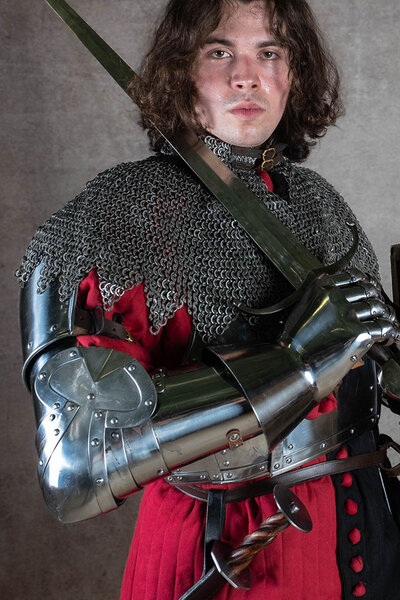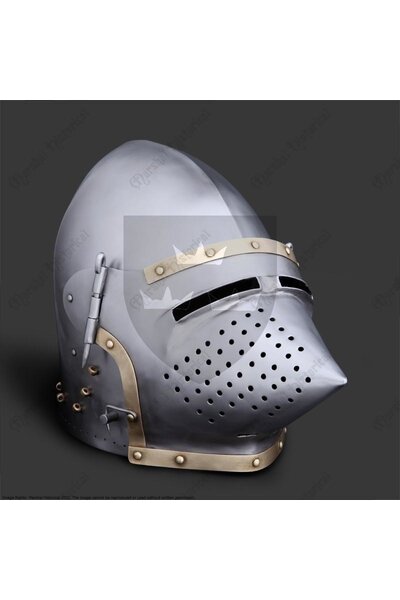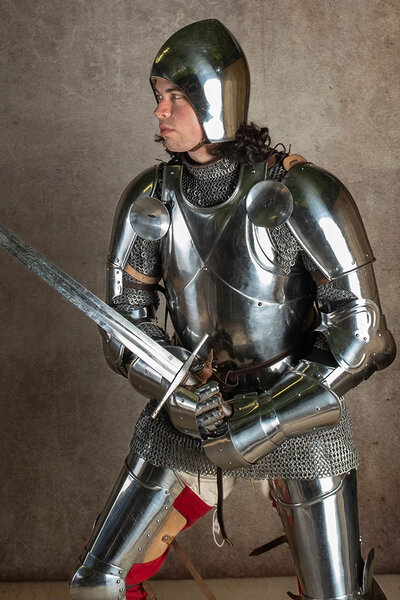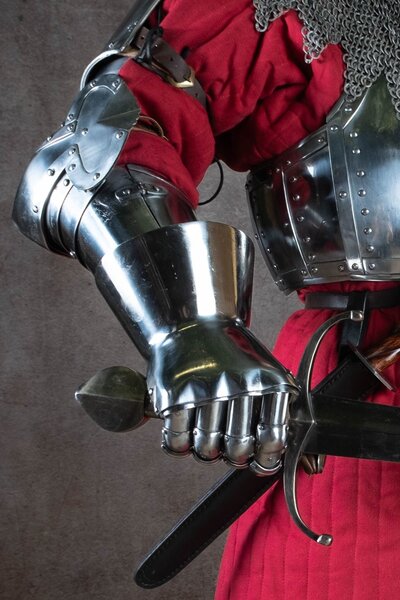Product description
This pair of hourglass gauntlets is made in the style of the mid 14th to early 15th century, which would have been worn by the knights and soldiers of the 100 years war between France and Britain. The hourglass design offers great protection and wrist mobility, which made it popular across all of Europe. The armors of this period were not full plate designs like the styles of the 15th century, instead the plate armor pieces were intended to be worn over a full hauberk and provide additional protection for the front of the chest and the arms. The gauntlets have a steel thickness of 1,6mm, while the finger plates have a thickness of 1,3mm, making it suitable for reenactment battles. The leather inner gloves are stitched to the tips of the gauntlet fingers, allowing them to be easily removed and/or replaced to your liking.
Details:
Material: Steel, leather, brass
Steel thickness: 1,6 mm (fingers) - 1,3 mm
Weight (pair): approx. 1000 gr
Standard size: up to a 9 glove size (up to 23,5 cm - 26 cm)
XL size: 10 to 11 glove size (26-28,5 cm up to 31 cm)
Based on a historical original
Shipment weight (g): 1000 *
This item is produced in limited quantities only. This means that every piece is unique. Sizes & finish may vary lightly from piece to piece.
Maintenance & care
Prevent rust and corrosion by oiling your armour regularly. Remove rust easily with black sandpaper.
How do I measure my glove size?
Always measure your writing hand. Clench your hand lightly and measure with a measuring tape around the knuckles.
19-22 cm: glove size 7.
22-24 cm: glove size 8.
24-27 cm: glove size 9.
27-30 cm: glove size 10.
Attaching armour & chainmail
To attach your armour or chainmail securely, you can attach leather laces to your gambeson and fasten these to your armour / chainmail. The armour thus remains in position during a fight.
When packaging this item, we exclusively use 100% recycled plastic and recycled paper/cardboard from FSC certified forests. We reuse a large part of the material directly without the intervention of a recycling process.
Recycle the material by separating your waste:
1. Cardboard: separate or reuse your paper.
2. Plastic cushions, clothing bags and plastic tape: separate or reuse your plastic. If possible, pierce the cushions with a volume reduction needle.
3. Paper packaging for jewelry and small items: these have a plastic inner layer. Remove these, then separate your paper and plastic.
Read here about how we are committed to sustainability.


























